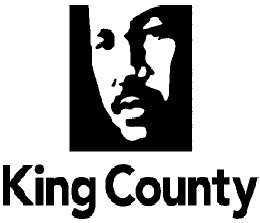King County Metro retained CSched services for production assistance to support their scheduling staff. This assistance consisted of coaching all schedulers during the implementation of best scheduling practices recommended in the 2009 management performance audit. This involved Mr. Courval and Mr. Muller working alongside the scheduling staff during every phase of the production process over the course of one and a half years during their routine scheduling changes and run picks. Much of this work focused on improving the schedulers’ knowledge and skill sets related to their use of HASTUS modules inclusive of ATP, Minbus, and CrewOpt to achieve more efficient schedules. These are sophisticated algorithmic tools that often overwhelm the users. This coaching also included a review of fundamental scheduling concepts such as cycle times analyses through HASTUS Object Group Builders to ensure scheduling efficiencies were built-in as early as possible within the scheduling process, namely the timetabling phase.
In working alongside the Seattle schedulers during their production process, CSched staff assisted them in developing more efficient scheduling practices, accordingly establishing Minbus rules and parameters, and observing their stated operating performance objectives. Much of this work occurred through evaluating multiple iterations of Minbus solutions, both quantitatively and qualitatively. After evaluating each scenario for its operating ease and “operator friendliness” (qualitative) and its total platform hours (quantitative), Seattle schedulers worked with CSched staff to make the necessary rule adjustments to achieve a balance between operating ease and efficiency.
As with Minbus, Mr. Courval and Mr. Muller worked alongside the Seattle schedulers during their run cutting process to assist them in making adjustments to their user-defined rules and parameters to achieve more desirable crew schedules. CSched staff worked with Seattle schedulers to initiate the practice of “integrated scheduling” whereby CrewOpt is permitted to review vehicle blocks while concurrently cutting operators shifts. Prior to “integrated scheduling” the vehicle blocking and operator run cutting were two completely independent steps – it was therefore not possible to trade-off slight vehicle inefficiencies to achieve significant crew efficiencies.
Subsequent to this work with schedulers in their use of Minbus and CrewOpt, CSched documented the recommended changes to rules and parameters for the benefit of GIRO in providing future support. In addition to realizing the significant efficiency gains afforded by these optimization tools, Seattle also realized efficiency gains among its scheduling staff through the increased automation provided by these tools.
Mr. Courval and Mr. Muller provide continuing support to King County Metro scheduling to assist with schedule writing, blocking, and run cutting for more complex routes such as their Rapid Route series of services. CSched also provides ongoing support for schedulers as they continue to incorporate best practices into their scheduling methods. Ms. Frigon very recently provided coaching support for King County IT staff in writing OIG / RIR scripts for bidirectional transfer of data between HASTUS and peripheral systems.



